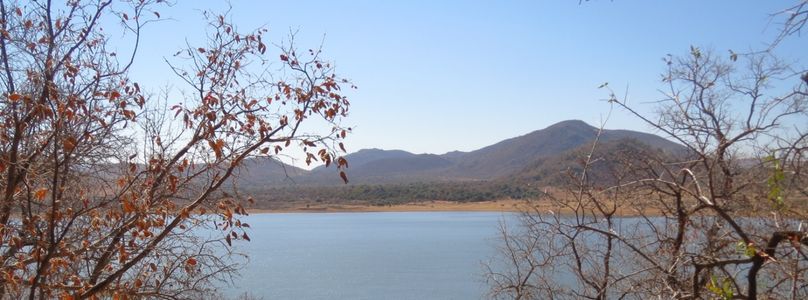Main content
Top content

Master module / field trip Behavioral Biology
In a two-year cycle, we offer an excursion module in South Africa for Master's students. In addition to the University of Pretoria, the Mogalakwena Research Centre, the Pilanesberg National Park or the Ukutula Conservation Centre are some of the stops. Through the combination of lecture, seminar and exercise, our students can improve their knowledge of species and expand their understanding of methods of behavioural biology and physiological field research. Another important aspect is nature and species conservation and wildlife management, so that we can discuss conflicts and solutions there. Thus, already existing knowledge is deepened and applied as well as new knowledge is acquired.
From the module description:
Introduction to research questions in the field of nature and species conservation with a special focus on southern Africa. The focus is on the acquisition of in-depth scientific skills and the practice of special techniques in the field, mainly in the areas of species knowledge, biodiversity, ecology, conservation, taxonomy, behavioral biology. Some of the courses take place in the field in national parks or in laboratories of biological stations in South Africa (e.g. Faculty of Veterinary Medicine and Biology, University of Pretoria, Ukutula Conservation Center, Mogalakwena Research Center, Pilanesberg National Park).
Lecture: Theoretical background and introduction to the topics covered in the seminar and exercises.
Seminar: Presentations and discussions to deepen and critically examine the basics taught in the lecture and more advanced aspects, such as funding opportunities for protected areas and species conservation programs, conflicts of interest with local populations, poaching, trophy hunting, ecotourism, as well as species knowledge, adaptations and characteristics of fauna and flora in southern Africa.
Field trip/exercises (14 days in South Africa): Methods of behavioral and physiological field research such as recording social behavior, activity patterns, rank orders, habitat and food selection, monitoring stress and reproduction via non-invasive measurement of hormone metabolites in excretory products. Acquire species knowledge and knowledge of wildlife biology in southern Africa such as way of life and ecology, habitat adaptations, social organization, and mating systems of the species. Study of wildlife conservation topics such as threat status and conservation measures for specific species and habitats (including wildlife management), methods and problems of conservation projects, conflicts and approaches to solutions on local, national and international levels. Getting to know research institutes as well as fields of activity for biologists outside universities.

